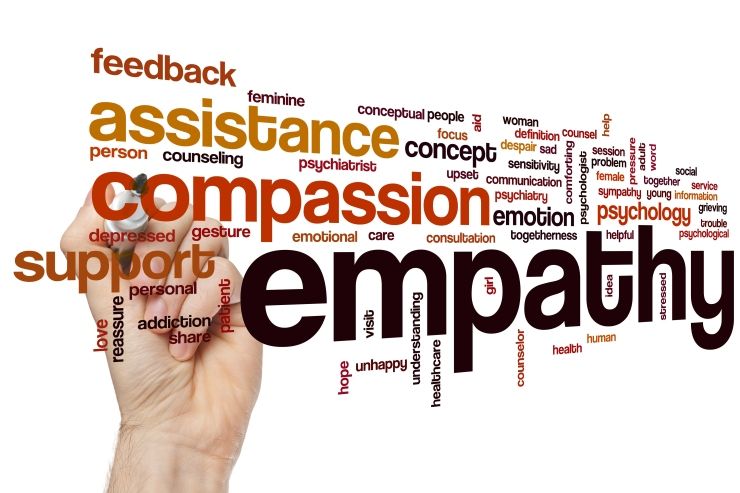Social awareness refers to the ability to understand and empathize with the emotions, experiences, and perspectives of others in society. It involves recognizing the social, cultural, and emotional factors that influence people’s behaviors and actions. This skill is essential for building strong relationships, fostering inclusivity, and promoting a sense of community.
Social awareness goes beyond individual interactions. It encompasses a broader understanding of societal issues, such as inequality, discrimination, environmental challenges, and public health crises. By cultivating social awareness, individuals and communities can work together to create a more equitable and compassionate world.
The Importance of Social Awareness
Contents
- 1 The Importance of Social Awareness
- 1.1 Developing Social Awareness in Daily Life
- 1.2 The Role of Education in Social Awareness
- 1.3 Social Awareness in the Workplace
- 1.4 Social Media and Social Awareness
- 1.5 Challenges to Social Awareness
- 1.6 Benefits of Social Awareness
- 1.7 How Communities Can Foster Social Awareness
- 1.8 Social Awareness and Global Challenges
- 1.9 The Path Forward
- 2 Author

Social awareness plays a crucial role in shaping a society where people can thrive. It helps individuals understand their impact on others, both directly and indirectly. For instance, being aware of how words or actions affect someone emotionally can lead to more thoughtful communication.
On a larger scale, social helps address systemic issues. By understanding the root causes of social problems like poverty, racism, or climate change, communities can take collective action to implement sustainable solutions. Awareness also fosters empathy, reducing prejudice and promoting unity.
Developing Social Awareness in Daily Life
Building social awareness requires intentional effort and practice. Here are some ways to incorporate it into daily life:
- Active Listening: Pay attention to what others say without interrupting or judging. This helps build understanding and trust.
- Observing Non-Verbal Cues: Facial expressions, tone of voice, and body language often convey emotions that words cannot. Recognizing these cues enhances empathy.
- Seeking Diverse Perspectives: Engage with people from different cultural, social, or economic backgrounds to expand your worldview.
- Practicing Empathy: Put yourself in others’ shoes and try to understand their feelings and experiences.
- Educating Yourself: Learn about societal issues through books, documentaries, or community events to gain a deeper understanding of the challenges people face.
The Role of Education in Social Awareness
Education is a powerful tool for fostering social. Schools and educational institutions can incorporate lessons that promote empathy, cultural understanding, and critical thinking. Through activities such as group discussions, role-playing, and community service, students can learn to appreciate diverse perspectives and understand their role in society.
Educational programs can also address broader issues, such as social justice, environmental sustainability, and mental health. By equipping students with knowledge and skills, education prepares them to become active participants in creating a more inclusive and equitable world.
Social Awareness in the Workplace
In a professional setting, social awareness is essential for fostering a positive work environment. Employees and leaders who demonstrate social are better equipped to collaborate effectively, resolve conflicts, and support their colleagues.
Organizations can promote social awareness by:
- Encouraging open communication and feedback.
- Providing diversity and inclusion training.
- Supporting employee well-being through mental health resources.
- Creating opportunities for team-building and community service.
By prioritizing social awareness, companies can build stronger teams and contribute to a more socially responsible corporate culture.
Social Media and Social Awareness

Social media has become a significant platform for raising awareness about societal issues. It allows individuals and organizations to share stories, advocate for change, and connect with like-minded communities. However, it also comes with challenges, such as misinformation and performative activism.
To use social media responsibly, individuals should:
- Verify the credibility of sources before sharing information.
- Engage in meaningful discussions rather than divisive debates.
- Support campaigns or initiatives that align with their values.
- Use their platforms to amplify marginalized voices.
When used effectively, social media can be a powerful tool for fostering social awareness and driving positive change.
Challenges to Social Awareness
Despite its importance, developing social awareness is not without challenges. Some of the common barriers include:
- Bias and Prejudice: Preconceived notions about others can hinder understanding and empathy.
- Lack of Exposure: Limited interaction with diverse communities may lead to a narrow perspective.
- Digital Echo Chambers: Social media algorithms often reinforce existing beliefs, making it harder to encounter diverse viewpoints.
- Emotional Fatigue: Constant exposure to societal issues can be overwhelming, leading to burnout or apathy.
Overcoming these challenges requires self-reflection, education, and a willingness to step out of one’s comfort zone.
Benefits of Social Awareness
Cultivating social awareness brings numerous depobos benefits, both individually and collectively:
- Stronger Relationships: Understanding and empathy enhance personal and professional relationships.
- Better Decision-Making: Awareness of societal impacts leads to more thoughtful choices.
- Community Building: Socially aware individuals contribute to creating inclusive and supportive communities.
- Advocacy and Activism: Understanding social issues empowers individuals to advocate for change.
- Mental and Emotional Growth: Reflecting on others’ experiences fosters resilience and emotional intelligence.
How Communities Can Foster Social Awareness

Communities play a vital role in promoting social awareness. By organizing events, workshops, and discussions, communities can create spaces for dialogue and learning. Collaborative efforts, such as volunteering or neighborhood improvement projects, encourage individuals to work together toward common goals.
Local leaders and organizations can also lead initiatives to address pressing issues, such as homelessness, environmental sustainability, or education inequality. When communities unite to tackle these challenges, they demonstrate the power of collective action and empathy.
Social Awareness and Global Challenges
In an increasingly interconnected world, social awareness extends beyond local communities. Global challenges such as climate change, migration crises, and public health emergencies require a united approach. Social enables individuals to understand the interconnectedness of these issues and the need for collective responsibility.
For instance, understanding the environmental impact of daily choices, such as reducing waste or conserving energy, contributes to global sustainability efforts. Similarly, recognizing the struggles faced by refugees or marginalized groups fosters international solidarity.
The Path Forward
Social awareness is a cornerstone of a compassionate and just society. By embracing empathy, understanding, and collective responsibility, individuals and communities can address social challenges and build a better future.
Whether through education, workplace initiatives, or personal growth, there are countless ways to foster social awareness. Each step taken to understand and support others brings us closer to a world where everyone can thrive.


